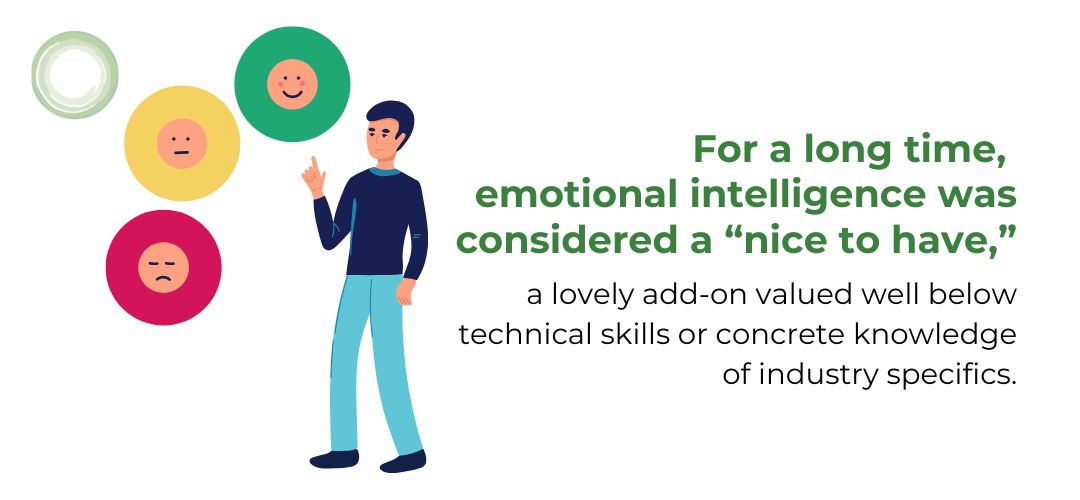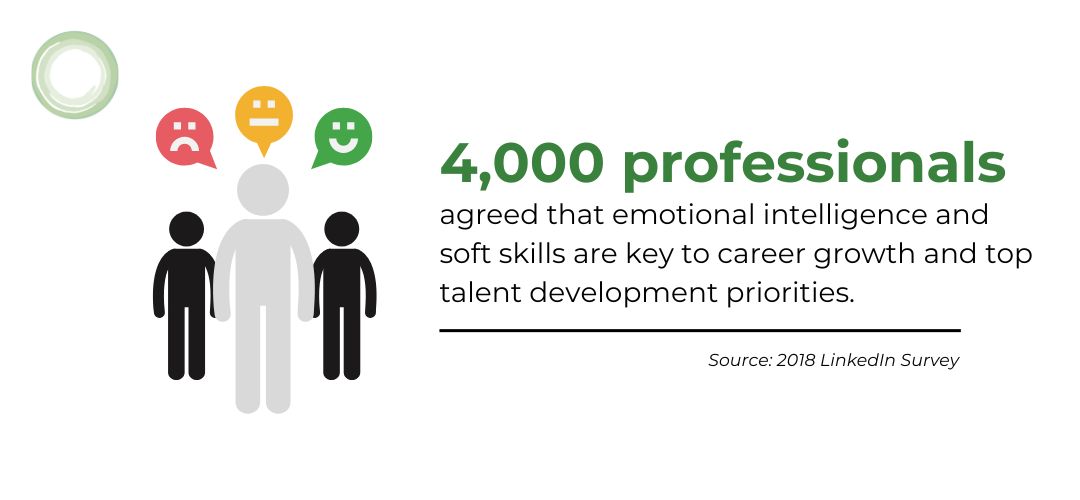Quick question for you: Do you think emotional intelligence is important in the workplace?
Well, that’s sort of a trick question, isn’t it? I bet you already know that emotional intelligence is one of the key ingredients in better business relationships, smoother meetings, and higher morale.
Officially, emotional intelligence is defined as the capability to:
- recognize your own emotions and those of others
- discern between different feelings and label them appropriately
- use emotional information to guide thinking and behavior
- manage emotions to adapt to environments or achieve goals
If you wish your C-suite would develop their emotional intelligence, here are four more reasons EQ is essential for success.
Why Emotional Intelligence Is Essential in Today’s Workplace
Let’s look at four ways emotional intelligence gives leaders and teams a real edge—beyond just good vibes and communication. These are the skills that influence who gets hired, promoted, and trusted to lead when it matters most.
1. Emotional Intelligence Outperforms AI in Workplace Communication
Many of the tasks performed by humans will be outsourced to artificial intelligence in the next decade. A line of code could replace three employees. A robot can complete things faster and more accurately than a human.
But AI can’t soothe a ruffled client after a missed deadline. A line of code can’t negotiate benefits or salaries. Workplace communication depends on empathy, timing, and emotional signals—things robots just don’t grasp.
To build resilience in your leadership team, consider investing in emotional intelligence training for managers who lead client-facing or cross-functional roles.
Soon, emotional intelligence will decide who has a job and who doesn’t. Simple as that.
2. Emotional Intelligence Is a Strong Leadership Skill—Not Just a Soft One
For a long time, emotional intelligence was considered a “nice to have,” a lovely add-on valued well below technical skills or concrete knowledge of industry specifics.

It was most important that a team member understood a coding language or industry-specific bylaws. If they could read a room or hold a conversation, that was icing on the cake.
No longer. As our workspaces become more collaborative, strong leadership skills are more important than ever. When a company is made up of people who are diplomatic, compassionate, and self-aware, everyone benefits — execs, team members, support staff, clients, and vendors.
3. Emotional Intelligence Fuels Career Growth and Leadership Opportunities
Obviously, right? Everything being equal, wouldn’t we all prefer to work with someone who can manage their emotions, respond well to feedback, respect and include others?
In a 2018 LinkedIn survey of 4,000 professionals everyone agreed– emotional intelligence and career growth were directly linked: the number one priority for talent development is training for soft skills.

If you’re focused on career growth, developing leadership soft skills can make the difference in promotion and retention.
4. Emotional Intelligence in the Workplace: A Future-Proof Soft Skill
Software will update, programming languages die out, and social media platforms lose favor. Hard skills have a surprisingly short shelf life. But emotional intelligence in the workplace remains critical, regardless of what else is happening in the industry.
Training for soft skills will soften the impact of automation. Companies will always need people who communicate well, think critically, and can adapt to changes with ease. Emotional intelligence is the leadership skill that won’t expire.
If you’re curious about your own level of emotional intelligence, take our 2-minute EQ assessment to get instant insights.
And if you have leaders in your organization who could benefit from emotional intelligence training or executive coaching, let’s connect to explore how we can support their development.


